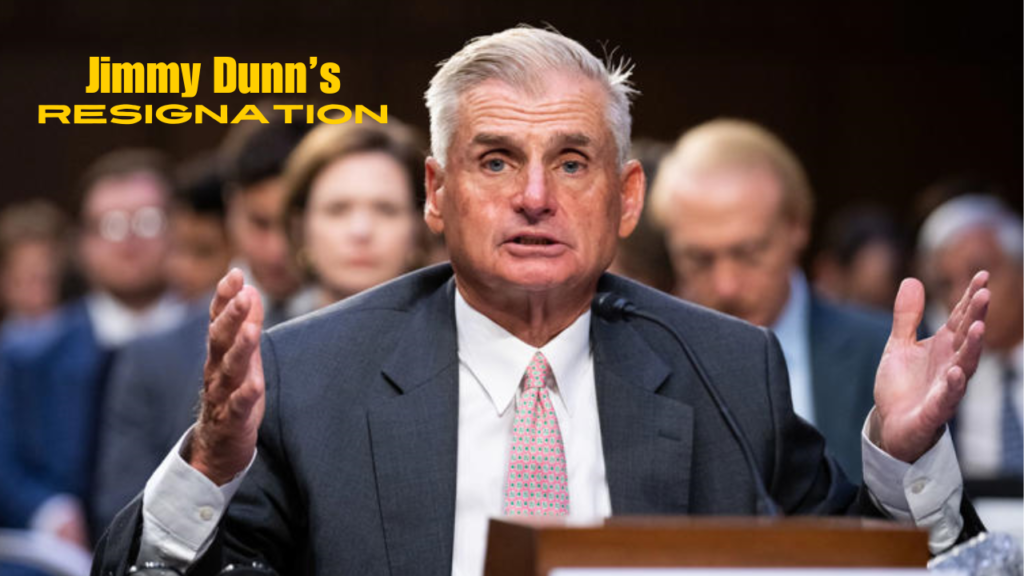Jimmy Dunne, one of the architects behind the PGA Tour’s framework agreement with the Saudi Arabian sovereign wealth fund, swiftly resigned from the tour’s Policy Board on Monday. In a letter obtained by Sports Illustrated, Dunne wrote, “There has been no meaningful progress in the direction of a transaction with PIF,” and since players seized control of the board and sidelined it from negotiations, “My vote and my role are entirely unnecessary.”
Jimmy Dunne resignation comes nearly a year after the announcement of the framework agreement shocked the golf world, initially presented as a “merger,” the framework agreement is essentially a deal that will determine the future of PGA Tour-supported LIV Golf. Al-Rumayyan had planned to invest over a billion dollars in the company that became PGA Tour Enterprises. They agreed to leave litigation against the Tour “with prejudice,” meaning the lawsuits cannot be refiled. The agreement stipulates that Al-Rumayyan will become chairman of PGA Tour Enterprises and PIF will receive a seat on the Tour’s Policy Board.
Dunne’s departure follows Commissioner Jay Monahan’s attempt to appease disgruntled players last summer by adding a board seat for Tiger Woods. Last time, Rory McIlroy, who expressed frustration with the slow pace of negotiations, resigned from the board. His place was taken by Jordan Spieth.
Sources told SI in December that board members Patrick Cantlay, Woods, and Spieth formed a coalition with Cantlay as the leader. Cantlay told Golf.com that it would be “impossible” to hold that much power for one player. Spieth laughed off the SI report, saying, “Since I got involved, it’s become very collaborative. It’s not such a thing… (Cantlay) agrees with everyone else.”
However, this spring, when Webb Simpson tried to resign and give his seat to McIlroy, it was blocked. McIlroy said, “There were some people on the board who maybe weren’t comfortable with me coming back for whatever reason.” Simpson kept his seat, then Monahan removed the board and included McIlroy in the Transactions Subcommittee.

The agreement was set to lapse on December 31. Initially, a clause was included that LIV would not poach any Tour players illegally, but the Tour eliminated that clause as part of a pre-emptive attempt to ease concerns about antitrust issues from the U.S. Department of Justice. Negotiations moved so slowly that in December, rather than concluding a deal with the Tour, Al-Rumayyan signed Jon Rahm for LIV.
Nine months after the announcement of the framework agreement, player directors had not even met with Al-Rumayyan. Before that meeting, Cantlay said, “I’m going into the first meeting with more of a listening mindset than anything else.”
Last time, the board turned to Ryan Capital for guidance in negotiations. Rain helped broker a $3 billion deal with Strategic Sports Group in January. But more than four months later, it’s unclear which direction negotiations with PIF are heading.
Monahan said in March that discussions are “accelerating.” Woods said in April, “I don’t know if we’re close or not, but we’re definitely moving in the right direction.” McIlroy has pressed for a deal with PIF. Spieth said, “I don’t think it’s necessary” now that the Tour has reached an agreement with the Saudi group, though he’s ready for it.
Dunne wrote in his resignation letter, “When I joined the board in January 2023, everyone involved in golf was concerned about the existential threat of LIV Golf.” “Following Commissioner Monahan’s direction, I reached out to LIV’s minority owners, the public.”
